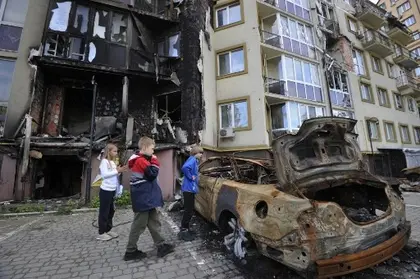Leaders from the Baltic states on Friday, Oct.21, urged their EU counterparts to help set up a special tribunal to prosecute Russia’s top brass for the “crime of aggression” against Ukraine.
The International Criminal Court (ICC) is currently probing potential war crimes conducted by Russian forces in Ukraine since Moscow launched its invasion in February.
JOIN US ON TELEGRAM
Follow our coverage of the war on the @Kyivpost_official.
But there are calls from Kyiv to establish an additional tribunal to target Moscow for the “crime of aggression” as it would allow for the swifter prosecution of Russia’s leadership.
“We definitely have to discuss the legal response to the crimes of aggression that have been committed and how to make a separate tribunal to prosecute those,” Estonian Prime Minister Kaja Kallas said, at a summit of EU leaders in Brussels.
“War crimes are prosecuted by the ICC, but the crime of aggression can only be prosecuted by a separate tribunal, and I see that the European Union could be the leader in this way.”
Latvian premier Krisjanis Karins said that the bloc should “start working towards a tribunal to figure out how to properly hold Russia also legally accountable for the atrocities that they are committing in Ukraine today”.
The Czech Republic, which currently holds the bloc’s rotating presidency, has also backed the push for a special tribunal, but others in Brussels are more wary about the move.

EU Transfers €1.5 Bln Raised From Russian Assets for Ukraine
EU justice commissioner Didier Reynders said last week that it was necessary “first to make maximum use of all the existing tools”, pointing to the ICC’s investigations and work being done by Ukraine’s prosecutor.
The legal concept of the crime of aggression has its origin in the Nuremberg trials that prosecuted the Nazi leadership in the aftermath of World War II.
You can also highlight the text and press Ctrl + Enter






